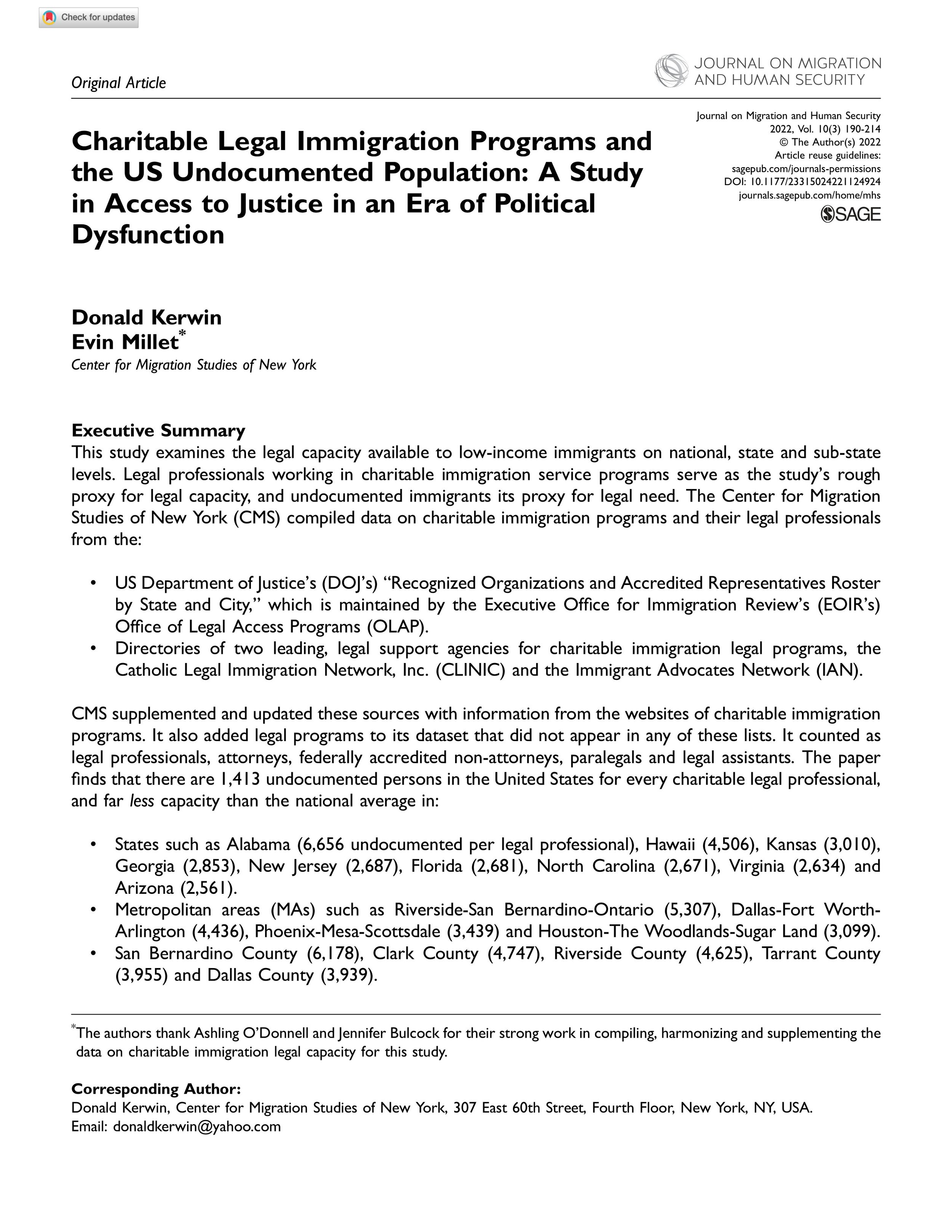By Donald Kerwin and Evin Millet
This study examines the legal capacity available to low-income immigrants on national, state, and sub-state levels. Legal professionals working in charitable immigration service programs serve as the study’s rough proxy for legal capacity, and undocumented immigrants its proxy for legal need. The Center for Migration Studies of New York (CMS) compiled data on charitable immigration programs and their legal professionals from the:
US Department of Justice’s (DOJ’s) “Recognized Organizations and Accredited Representatives Roster by State and City,” which is maintained by the Executive Office for Immigration Review’s (EOIR’s) Office of Legal Access Programs (OLAP).
Directories of two leading, legal support agencies for charitable immigration legal programs, the Catholic Legal Immigration Network, Inc. (CLINIC) and the Immigrant Advocates Network (IAN).
CMS supplemented and updated these sources with information from the websites of charitable immigration programs. It also added legal programs to its dataset that did not appear in any of these lists. It counted as legal professionals, attorneys, federally accredited non-attorneys, paralegals, and legal assistants. The paper finds that there are 1,413 undocumented persons in the United States for every charitable legal professional and far less capacity than the national average in:
States such as Alabama (6,656 undocumented per legal professional), Hawaii (4,506), Kansas (3,010), Georgia (2,853), New Jersey (2,687), Florida (2,681), North Carolina (2,671), Virginia (2,634) and Arizona (2,561).
Metropolitan areas (MAs) such as Riverside-San Bernardino-Ontario (5,307), Dallas-Fort Worth Arlington (4,436), Phoenix-Mesa-Scottsdale (3,439) and Houston-The Woodlands-Sugar Land (3,099).
San Bernardino County (6,178), Clark County (4,747), Riverside County (4,625), Tarrant County (3,955) and Dallas County (3,939).
The study’s introduction summarizes its top-line findings. Its first section describes the importance of charitable immigration legal programs to immigrants, families and communities. Its second details the study’s findings on charitable legal capacity and immigrant need. Its third compares the legal capacity of 1,803 charitable legal programs and their 7,322 legal professionals, with the US undocumented population by state and for the 15 largest MAs and counties. Its fourth describes CMS’s research methodology and data sources. The paper ends with policy recommendations on how to expand legal capacity for low-income immigrants and better assess legal capacity and need moving forward.
Journal on Migration and Human Security 2022, Vol. 10(3) 190-214


